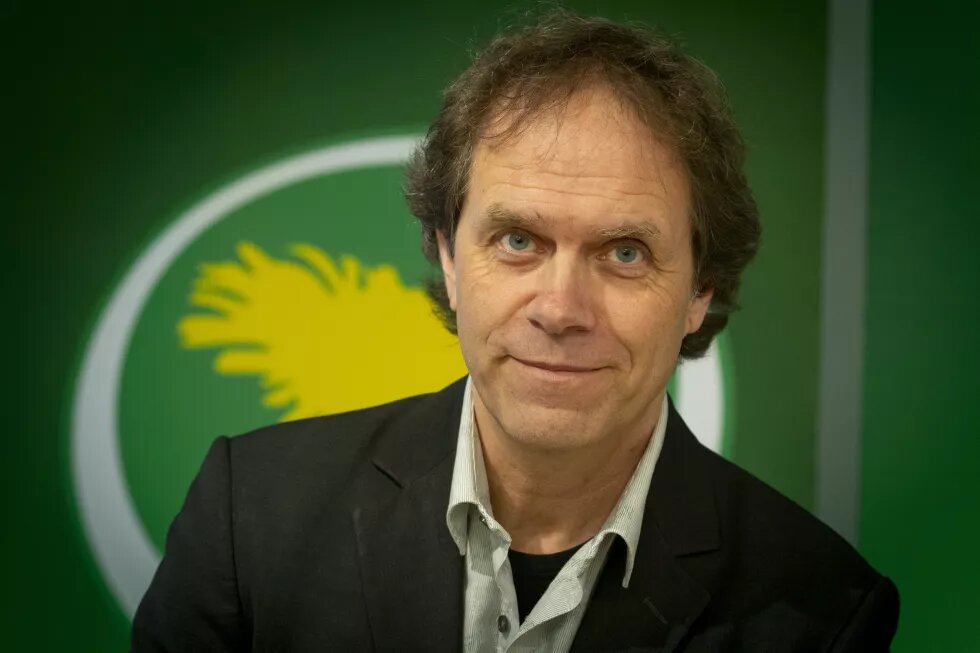
Pär Holmgren is a Member of the European Parliament for the Swedish Green party, Miljöpartiet de Gröna. He is a meteorologist and climate expert by profession and has been working with different aspects of the climate issue for the last 30 years. He holds an honorary doctorate from Uppsala University, where he is a frequent lecturer, and has published several books on the subjects of meteorology and climate policy.
Holmgren took the step from academia to politics in the 2018, when he joined the Swedish Green party. In the 2019 European Parliament elections, he won one of two seats allocated to the Swedish Greens.
What made you join the green movement?
I have been a part of the green movement for a very long time. My interest in environment and climate issues inspired me to study meteorology and natural science, and has motivated me to commit the greater part of my adult and professional life to these subjects.
It was during the 1990s that I became increasingly active in the movement. At that time, the debate on climate change was gearing up, with the adoption of the United Nations Framework Convention on Climate Change (UNFCCC) in 1992 and the Kyoto Protocol in 1997.
At the same time, public knowledge about climate change was limited. As a meteorologist and well-known weatherman on Swedish national television, I felt an obligation to do my bit. I started holding public lectures on climate change, published educational books on the subject and worked with Swedish television to produce programmes explaining the human impact on our environment and climate system.
We have come a long way since the 1990s. Today’s discussions focus more on the concrete measures we need to tackle climate change, rather than on the mechanisms driving the change itself. It is a welcome development, but presents even greater challenges.
In short, time is running out for humanity. Sufficient measures must be implemented within the next decade if we are to have any chance of avoiding catastrophe. That is why I chose to enter politics. It is no longer enough to merely talk about the dangers of climate change – we need action. I hope that my expertise as a climate expert will be as useful in this regard as it has been in spreading knowledge about the issues themselves.
During the last 20 years, I have given well over a thousand lectures and written or co-written close to 20 books about meteorology and climate change. My latest book is called “The least we can do is as much as possible – and a little bit more.” I think that the title pretty much summarises our current situation. We are in a climate emergency – it is time to start acting like it.
Why EU politics?
Climate change is a global endeavour. Every country will have to do its share if we are to have any chance of meeting our climate targets. As the third largest emitter of greenhouse gases in the world, the EU plays an imperative role in making this transition possible.
The EU is uniquely situated to take the lead in tackling climate change. We have the resources to make a difference, and inspire others to play their part. We have every opportunity to become a global role model for how to decarbonise in an efficient, fair, democratic and sustainable way. I want to be a part of making that a reality.
As other countries are wavering in their climate commitments, the importance of the EU stepping forward grows. We have to raise our ambitions and start delivering results if we are to have any chance of meeting our commitments under the Paris agreement. We have to start listening to the scientific community, and begin carrying out their policy recommendations. I hope that I – with my background in academia – will be able to contribute to laying the foundation for a more scientifically sound climate policy in the EU.
What do you want to fight for in the European Parliament?
I will devote my time in the European Parliament to making sure that climate promises are translated into action. The EU and its member states must be impelled to make good on their promise to “lead from the front” in the global green transition.
We have to adopt more ambitious targets for cutting emissions, increasing energy efficiency and producing renewable energy. Strengthening our commitments is not only essential for the implementation of the Paris agreement, it is also imperative for all public and private organisations that are contributing to the green transition.
It is through clear goals that we create predictability, which in turn provides investment certainty, which facilitates long-term thinking and planning. Only then can we fully profit from the opportunities that the green transition provides: new, green jobs, first-mover advantages and cutting-edge research and development.
We also have to double down on our efforts to help the public and private sector meet their climate targets. We need a green investment shift, where resources spent on inefficient, unsustainable solutions such as subsidies for coal, gas pipelines and free emission allowances are phased out, while our investments in sustainable energy sources, climate research and incentives for the adoption of climate-friendly innovations and technology are dramatically increased.
This is the foundation for the “Green New Deal”, the overarching framework for a socially and economically just green transition that promises to revolutionise society. I will work hard to make sure that the Green New Deal becomes a reality, and that no one is left behind in the transition to a sustainable society.
Tackling climate change is a global endeavour. Every nation will have to play its part. During my time in the European Parliament, I will do my utmost to make sure that the EU delivers on its climate promises and will be able to serve as a shining example for the rest of the world to follow in achieving a zero-emission society.